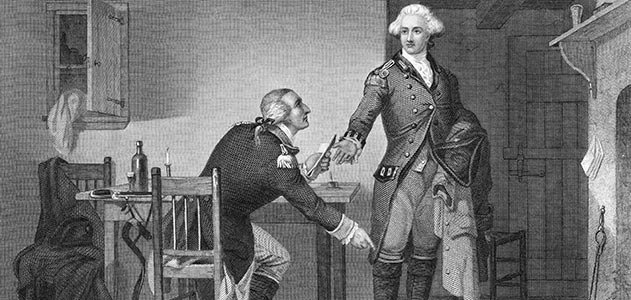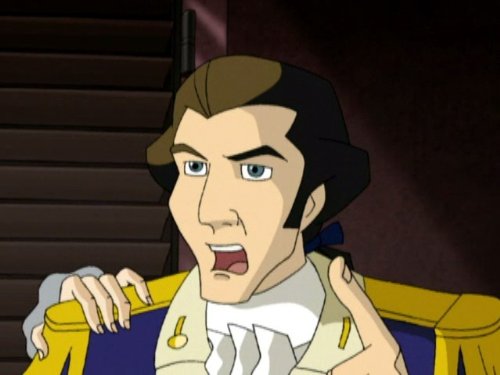Benedict Arnold: Hero or Traitor?
Legacy

Benedict Arnold (left) passing along concealed plans to his partner John Andre.
Hanc, John. Smithsonian Magazine, 2010.
For hundreds of years, the name ‘Benedict Arnold’ has been synonymous with ‘traitor’ or ‘turncoat’. Up until recently, these labels were unequivocally accepted and little was researched about Arnold other than the basic story. Now, archaeologists and historians have dug deeper into who Arnold was and the motivation behind his actions. This research has discovered that Arnold felt unappreciated and unimportant in the eyes of his commanders and fellow soldiers. The contributions Arnold made to help the colonies are often overlooked; without his leadership, some of the most influential battles of the Revolutionary War would never have been won by the US. Though nobody can deny that Arnold betrayed America, it is also important to not overlook the ways Arnold served his country.
“There has been, for the past couple of decades, a lot of scholarship and writing about his activities in the area which shines a brighter light on those activities and portrays them in a more nuanced way than has been discussed in the past.”
- Chris Sabick, Lake Champlain Maritime Museum
“Many historians have believed Arnold turned traitor simply for money. [But] like the man himself, the motives were complex."
- Willard Sterne Randall, author of the book Benedict Arnold: Patriot and Traitor in an interview with the New York Times

Benedict Arnold in the popular children's series Liberty Kids
Liberty, Kids. “Benedict Arnold.” IMDb, 20 Jan. 2003.
Arnold has also been portrayed in modern popular culture from historical movies to children's television shows. In most instances, he is shown as a conspiritorial character who's purpose is to teach a lesson on morality. This representation reinforces the notion that Benedict Arnold was merely a traitor who betrayed America out of spite and greed rather than showing the whole picture.